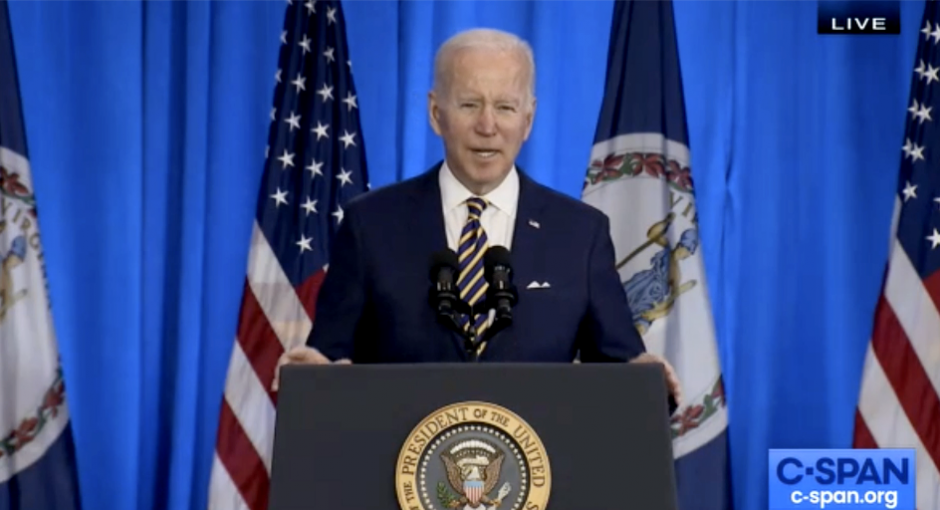President Joe Biden today during a major speech on drug pricing reform applauded U.S. Rep. Abigail Spanberger (D-Va.) for being “relentless in making sure” that the 340B statute “is actually enforced.”
Biden and U.S. Health and Human Services (HHS) Secretary Xavier Becerra were in Culpepper, Va., in Spanberger’s congressional district to speak about the administration’s work to lower prescription drug costs and health care costs. Biden, Becerra, and Spanberger urged passage of Democratic legislation, currently stalled in the U.S. Senate, to give Medicare authority to negotiate drug prices with manufacturers, to cap out of pocket costs on insulin, and to make drug companies give the government rebates when prices paid by Medicare rise faster than the rate of inflation.
Jump-Starting Stalled Legislation
The White House characterized Biden and Becerra’s remarks in central Virginia today as an effort to jump-start the push for drug pricing reform. “We obviously want to continue to fight to get it done,” Biden’s press secretary Jen Psaki said yesterday.
Biden and Becerra are scheduled to speak Monday at the National Association of Community Health Centers (NACHC) Policy and Issues Virtual Forum. They are expected to speak again about lowering prescription drug prices and probably will commend health centers for their major role in COVID-19 testing and vaccination.
“Medicare can negotiate everything except drug prices—the only outfit they can’t deal with” Biden said today. “My plan would let Medicare negotiate the prices they are prepared to pay for each individual drug. If the company says I’m not going to sell it to you at the price, fine, but they are going to lose millions of customers. What we’re proposing is that we negotiate fair prices, one that reflects the cost of research and development and the need for significant profit but that is still affordable and that has some relationship to the cost to the drug company.”
“We pay too much for prescription drugs—on average more than $1,500 per person” per year, Becerra said. “That’s why last fall, we rolled out a comprehensive plan to lower prescription drug prices through real competition, negotiating for the best price, and sparking new, innovative treatments.”
“Our work isn’t finished,” Becerra said. “And it takes all of us.”
“Working Together” on 340B
During his talk, Biden said Spanberger “has been relentless in making sure the law that’s been on the books that says that pharmaceutical companies need to provide rural clinics and community health centers with discounts on prescription drugs is actually enforced.”
“We’re working on that together as well,” the president said.
Bipartisan 340B Causes in Congress
Spanberger has emerged as leader of bipartisan 340B causes in Congress.
She and Republican Rep. Dusty Johnson (S.D.) currently are orchestrating an hour of speeches by House members promoting the 340B program. It was slated for Feb. 8 but had to be rescheduled.
Last month, Spanberger, Johnson, and Reps. Cindy Axne (D-Iowa), Doris Matsui (D-Calif.), David McKinley (R-W.Va.), and John Katko (R-N.Y.) asked Becerra in a letter “to move quickly to enforce the law and begin assessing civil monetary penalties on manufacturers that have denied 340B pricing to providers.”
In March 2021, the same six lawmakers got a bipartisan group of 220 other House members to sign a letter to then-acting HHS Secretary Norris Cochran seeking immediate action against manufacturers imposing conditions on 340B pricing.
Spanberger, Axne, Matsui and Republicans McKinley, Johnson, and Chris Stewart (R-Utah) are the lead sponsors of House legislation to keep hospitals from losing eligibility for 340B discounts because of changes in patient and payer mix caused by the COVID-19 pandemic
Spanberger and McKinley introduced legislation last July would prohibit pharmacy benefit managers (PBMs) and other third-party payers from paying 340B providers below-market rates or engaging in other perceived discriminatory contracting practices.


